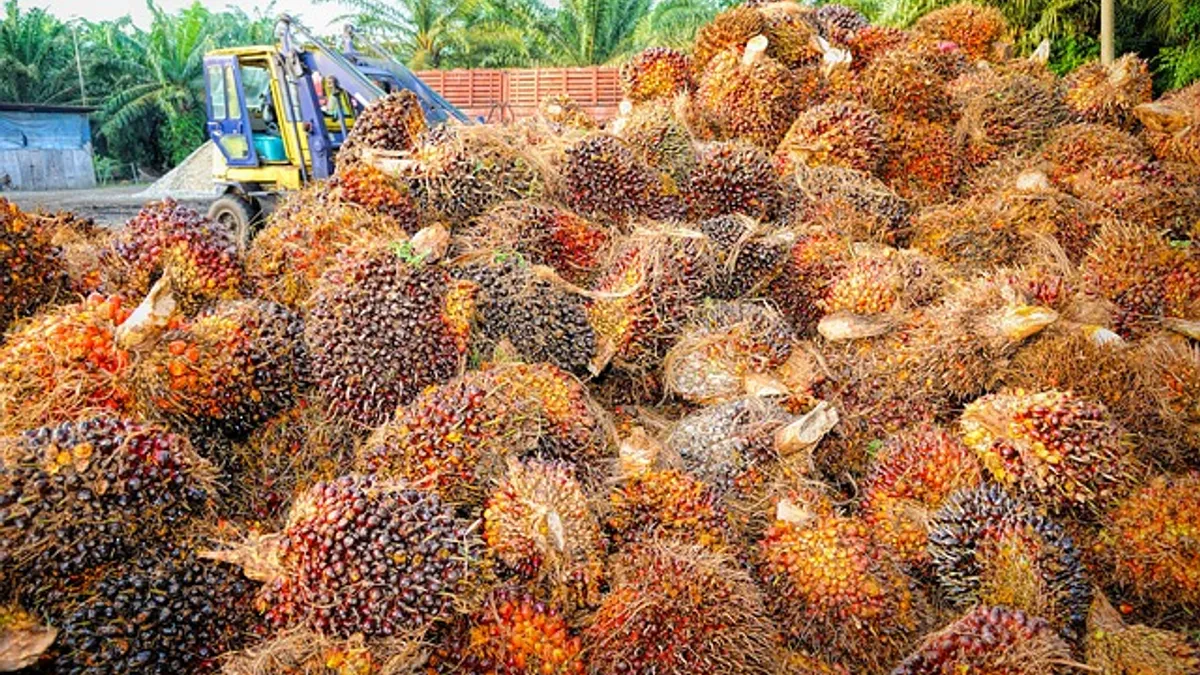Dive Brief:
- U.S. Customs and Border Protection has begun blocking palm oil and palm-oil product imports from the Malaysian producer FGV Holdings Berhad and its subsidiaries and joint ventures, the agency announced Wednesday, the day the order took effect.
- The withhold release order comes after a year-long investigation that found indicators of forced labor including restriction of movement, isolation, physical and sexual abuse, intimidation and threats, retention of identity documents, withholding of wages, debt bondage, abusive working and living conditions, and excessive overtime, the agency said. It also found that child labor is potentially being used in FGV's supply chain.
- "The use of forced labor in the production of such a ubiquitous product allows companies to profit from the abuse of vulnerable workers," Brenda Smith, executive assistant commissioner of CBP’s Office of Trade, said in a statement. "These companies are creating unfair competition for legitimately sourced goods and exposing the public to products that fail to meet ethical standards."
Dive Insight:
This is not the first time FGV has been connected to the use of forced labor. In 2018, the Rainforest Action Network called out Cargill, Hershey's, Mars, Nestlé, PepsiCo, Procter & Gamble and Unilever for sourcing palm oil from FGV. At the time, an investigation by the Roundtable on Sustainable Palm Oil found evidence of forced labor in FGV's palm oil production.
Some companies have already taken steps to distance themselves from FGV. Nestlé, Unilever and L'Oréal stopped buying palm oil from "Felda or its commercial affiliate, FGV," according to a recent investigation by the Associated Press that found widespread forced labor in the palm oil supply chain.
Cargill currently has a supplier grievance pending against FGV that its website says is "under review." But the grievance is linked to deforestation, not forced labor issues. Hershey's says it had "no direct sourcing relationship with FCV Holdings," according to its most recent palm oil grievance log.
FGV employs nearly 30,000 foreign workers, manages about 1 million acres and has a 50/50 joint-venture with Procter & Gamble, according to the Associated Press.
Last year, Procter & Gamble released a note acknowledging concerns about FGV's labor practices and said it was going to work alongside the company to implement changes. "FGV has agreed to partner with us, expert consultants and key stakeholders to drive change in their organization, as well as the entire industry," reads the note from September 2019.
FGV is the world's largest crude palm oil producer, according to Reuters.
Palm oil is one of the commodities at the heart of the global forced labor issue, according to The Consumer Goods Forum, an industry group made up of retailers and manufacturers.
In 2018, The Consumer Goods Forum released another report outlining concerns about forced labor in the Indonesian and Malaysian palm oil supply chains. Its recommendations included lobbying governments to enforce regulations, working with large businesses throughout the supply chain to improve labor conditions, and working toward a better certification and auditing process.
The risk of forced labor has increased around the world as a result of the coronavirus pandemic, which has complicated traditional safeguards like supplier audits. But the Roundtable on Sustainable Palm Oil has adopted new audit guidance to keep the process moving during the pandemic.













